Health and Food Supplements Information Service
We work with a network of independent experts in the fields of medicine, science and nutrition.
PAGB provides expert comment and opinion to the media about self-care, over-the-counter medicines, self-care medical devices and food supplements.
We work with a panel of experts to help communicate the benefits of self-care so that people feel empowered to manage their health when dealing with self-treatable conditions.
For media enquiries about self-care and over-the-counter medicines or medical devices, please contact Farhana Hawthorn on farhana.hawthorn@pagb.co.uk or 07522 616526.
For expert comment on issues related to vitamins, minerals and other food supplements, please contact the Health and Food Supplements Information Service (HSIS) on 020 3600 0228 / 07867 513361.
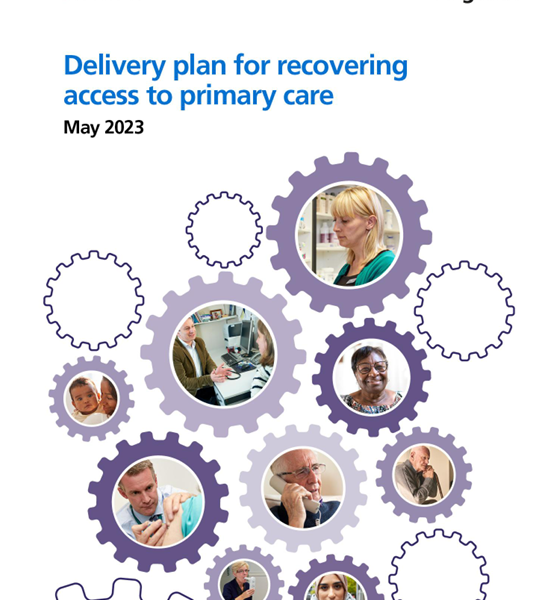




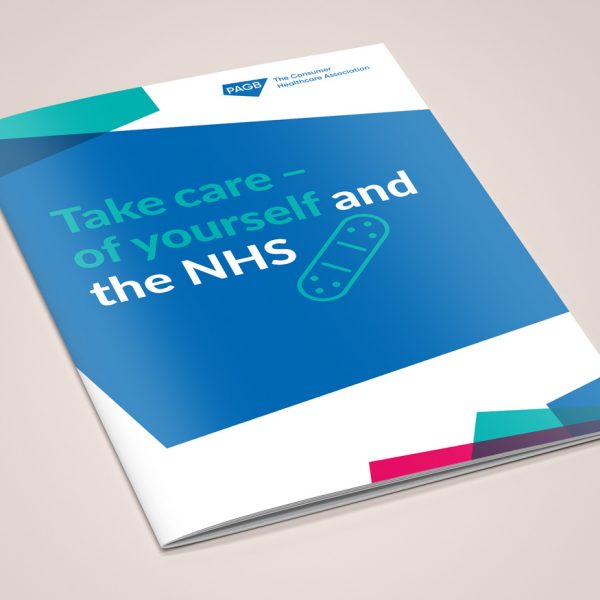
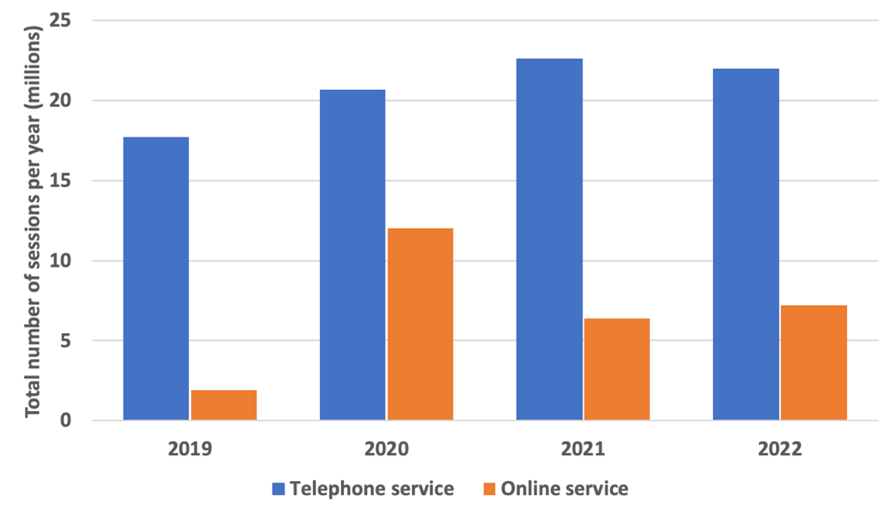










The Government’s plan for recovering access to primary care is welcome news for patients and the NHS, as well as the wider healthcare system.
The Government and NHS England have published a Delivery plan for recovering access to primary care.
PAGB has developed a toolkit to support Primary Care Networks to empower people to self-care.
Pholcodine-containing medicinal products are no longer available on the UK market.
Today’s Budget announcement included confirmation that the MHRA will receive £10 million extra funding over two years to maximise its use of Brexit freedoms and accelerate patient access to treatments.
Following a review by the MHRA, the UK regulator has taken the precautionary step to recall medicines containing pholcodine

Michelle Riddalls, Chief Executive of PAGB, the consumer healthcare association, which represents the manufacturers of over-the counter-medicines (OTC) has said: “This winter we have seen, and continue to see, a significant increase in cough, cold and flu; this has resulted in an increase in demand for over-the-counter cough and cold medicines.
Michelle Riddalls, Chief Executive of PAGB, the consumer healthcare association, which represents the manufacturers of over-the counter-medicines (OTC) has said: “This winter we have seen, and continue to see, a significant increase in cough, cold and flu; this has resulted in an increase in demand for over-the-counter cough and cold medicines.
Michelle Riddalls, Chief Executive of PAGB, the consumer healthcare association, which represents the manufacturers of over-the counter-medicines (OTC) has said: “This winter we have seen, and continue to see, a significant increase in cough, cold and flu; this has resulted in an increase in demand for over-the-counter cough and cold medicines.

Michelle Riddalls, PAGB Chief Executive: “The comparison by the Morning Live programme of salt content in soluble products, versus fast food is not an appropriate or fair comparison.

PAGB response to MailOnline article on salt levels in soluble OTC medicines
Michelle Riddalls, PAGB Chief Executive: “The sodium in effervescent medicines helps them to dissolve in water. The availability of soluble medicines provides an alternative choice for people who can’t, or don’t like to, swallow tablets or capsules.
Today PAGB Chief Executive, Michelle Riddalls, appeared as an expert witness before a House of Lords committee to give evidence on behalf of the OTC sector on the supply of medicines and medical devices to Northern Ireland. She emphasised how hard work and negotiations over the past two years between the sector, the UK Government and the EU have ensured that barriers to accessing OTC medicines and medical devices have not arisen.
PAGB has co-signed an open letter, published in the Times today calling on the Secretary of State for Health and Social Care, Steve Barclay MP, to develop and implement a national self-care strategy.
PAGB has co-signed an open letter, published in the Times today calling on the Secretary of State for Health and Social Care, Steve Barclay MP, to develop and implement a national self-care strategy.
The Government has accepted calls to make permanent the approach of maintaining a list of approved countries for import which require no import testing or UK Qualified Person certification.

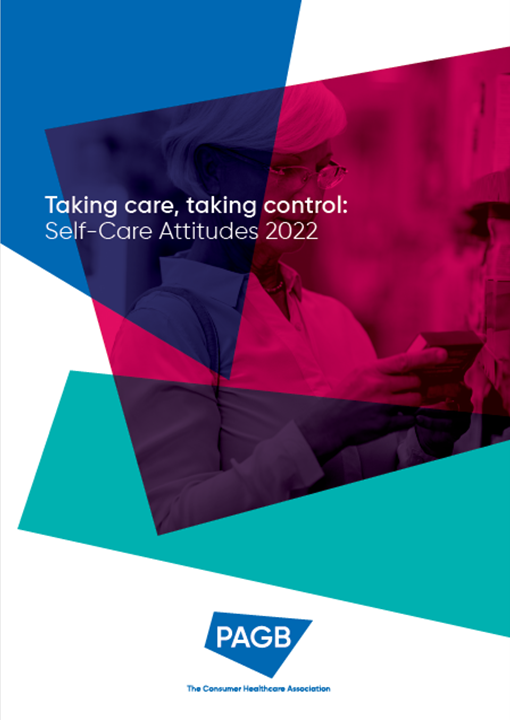

PAGB, the consumer healthcare association has welcomed plans from Thérèse Coffey, Secretary of State for Health and Social Care and Deputy Prime Minister, to help people access the care and support to meet their health needs.





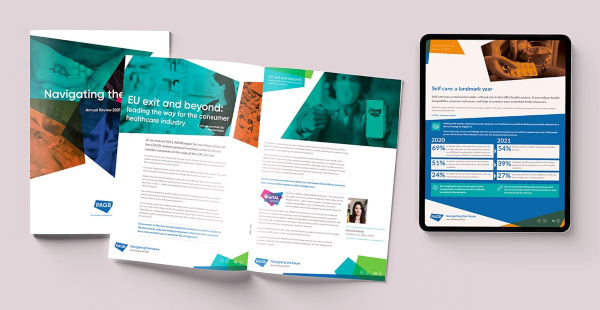














PAGB supports International Self Care Day - an annual awareness campaign to celebrate and promote self care.






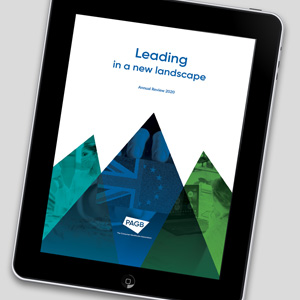







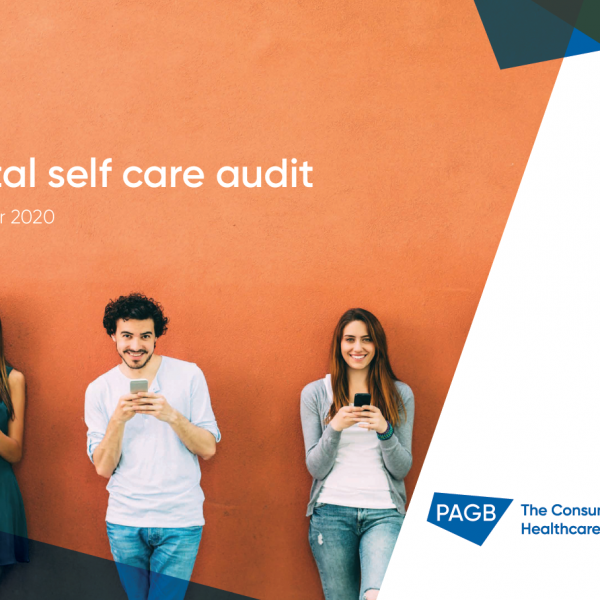

Complaint not upheld on Flarin soft capsules - professional and consumer advertising produced by Infirst, seen February - September 2020
PAGB welcomes NICE guideline on digital and mobile interventions for health behaviours
Teach self care to improve health and help the NHS, says report
PAGB responds to Health and Social Care Select Committee report
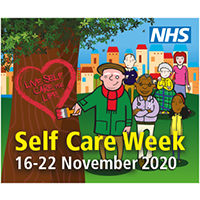

PAGB responds to research on PPIs and Type 2 diabetes
PAGB responds to research into paracetamol and risk-taking






PAGB supports International Self Care Day - an annual awareness campaign to celebrate and promote self care.

PAGB among signatories to Covid-19 Recovery Roadmap
PAGB responds to S. Korean study on ibuprofen and coronavirus.
PAGB urges NHS to seize ‘unique opportunity’ for self care
PAGB response to research investigating the effect of nicotine on coronavirus
PAGB responds to review of ibuprofen and coronavirus

ASA highlights regulations in face of Coronavirus pandemic

PAGB response to concerns that stocks of paracetamol are low.
PAGB welcomes the inclusion of people involved in the production of medicines in the Governments 'key worker' list
PAGB statement on reported concerns about the use of ibuprofen for coronavirus (Covid-19) symptoms.
PAGB has introduced measures to protect the health and wellbeing of staff and members. PAGB's office will close, the majority of our work will continue as normal.


PAGB response to BBC Horizon programme on OTC codeine medication

PAGB response to research on PPIs and stomach bug risk


This Self Care Week, PAGB examines the definition of “self care” and how its meaning has evolved over the last 50 years
Watch or download PAGB's webinar for a comprehensive guide to government guidance on no deal business readiness that applies to the consumer healthcare industry.
PAGB response to research on the ingredients in teething products
PAGB response to research on paracetamol in pregnancy and behavioural issues risk in children
According to Precision Marketing Group's Ellie Hughes, "we can count on PAGB to have the knowledge, expertise, energy and commitment to ensure the UK consumer healthcare market thrives for the next 100 years"
New research finds Baby Boomers mistrusting when it comes to digital health, with younger generations keen for more.
PAGB’s Victoria Trowse highlights the importance of knowing your advertising guidelines, providing a useful list of the key differences in the advertising guidelines for medicines and food supplements.
Spink, one of PAGB’s longest standing Associate Members, is celebrating 30 years in healthcare communications. Here they reflect on the trends, challenges and opportunities in consumer healthcare over the years.
PAGB responds to ASA ruling on the use of bloggers in advertising OTC medicines
Lucy Rochford explains how PAGB brought copy clearance into the 21st century moving from snail mail to online systems, and the challenges this brought.
Bron Gorny, who has been involved with PAGB one way or another since the 1980s, shares his experience as PAGB President, and some of the major challenges that PAGB has faced over the years.
Since it began in 1999, HSIS has been a force to be reckoned with, restoring balance to media reporting on food supplements. Find out about its latest report on dietary trends over 20 years.

As PAGB celebrates 100 years of self regulation, Natalie Bayes explores the history of some of the well known brands that have also stood the test of time.
PAGB has appointed Michelle Riddalls as Senior Director of Regulatory Affairs and Advertising Services.
Hayden Allen-Vercoe considers what the next 100 years of consumer healthcare will look like, examining some of the key developments that indicate how future trends in population wellbeing are likely to look.
PAGB's TC Callis explores the history of food supplements in the UK and how products containing nutrients to supplement the diet eventually came to be classified as food supplements.
Willem Vas Dias reflects on PAGB's positive relationship with Seven Seas and how this has evolved throughout the years.
AESGP's Jurate Svarcaite and Maud Perrudin reflect on the key milestones achieved through AESGP's collaboration with PAGB throughout the years, and the need to continue to advance responsible self care.
John Noble explores the impact of brands and considers how engagement, innovation and expertise enable the best branded products to stay as category leaders, driving choice and consumer satisfaction and preference.
Sheila Kelly reflects on PAGB's role in advertising regulations throughout time and its emphasis on ensuring regulations in the European Economic Comission did not negatively impact our industry.
All children should be educated about how to self care and manage self-treatable conditions, as well as the different roles of healthcare professionals so they grow up knowing how to use NHS services appropriately.
Stephen Woodford looks at the shared origins of both bodies and how one of their founding principles – trust – remains as vital today as it has always been.
PAGB's Nikki Kennedy reflects on the high standards PAGB have adopted in the self-regulation of members’ advertising, and how these standards have been maintained within the expanding landscape of self-regulation.
MHRA's Claire Tilstone, Colette McCreedy, Julia Coombes and Ian Hudson, reflect on the role of regulation for over the counter medicines and how this has developed and evolved over the years, with new changes in the way advertising is delivered/ to meet each new challenge.
PAGB responds to Which? article on salt levels in soluble OTC medicines
PAGB responds to Radio 4 programme on salicylate containing topical warming sprays and gels

Guy Parker reflects on the thinking behind the ASA’s new five year strategy and how we ensure we continue to be fit for purpose in delivering protections for consumers and business.
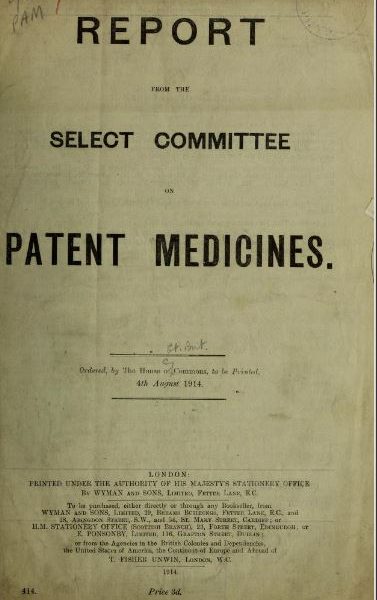
PAGB responds to the new NICE guidance on antimicrobial prescribing for acute cough
PAGB responds to investigation regarding the associated fire risk of paraffin-based emollients
PAGB responds to Which? article on branded over-the-counter pain medicines
PAGB responds to media reports of long-term use of Ibuprofen for pain
PAGB responds to research linking long-term use of aspirin and increased risk of bleeding
PAGB responds to an article on The Sun Online linking over-the-counter cold medicine to an increased risk of heart attack and stroke
Read PAGB's response to The NHS Long Term Plan.




In Self Care Week 2018, PAGB calls for self care to be included as a key requirement in professional training for GPs and other healthcare professionals, to help improve health literacy and reduce the burden on the NHS.
Read our position on waste from single-use plastics.
PAGB response to BMJ review on efficacy of decongestants in children


PAGB calls for pharmacies to be empowered with the tools to improve patient care and reduce pressure on NHS services
PAGB response to MHRA announcement that products containing doses equal to or greater than 1178mg/day of base glucosamine, will now be considered to be medicines.
PAGB welcomes the publication of the Government’s technical notices outlining how medicines and medical devices will be regulated and tested in the event of a ‘no deal’ exit from the EU at the end of March 2019.
PAGB welcomes the NICE draft guidance* on antimicrobial prescribing for acute cough, which recommends honey or cough medicines containing pelargonium, guaifenesin or dextromethorphan, as the most appropriate course of treatment, in the first instance.


PAGB is calling for a national strategy for self care to become a critical part of NHS long term plans, in order to ensure a sustainable future for our health and care system.

John Smith, PAGB Chief Executive, comments: “The labelling of over-the-counter (OTC) medicines is highly regulated in the UK. As an industry, we take very seriously the information provided to consumers on medicines’ packaging and we ensure we comply with the relevant legislation and make sure people have the right information to choose a product to meet their needs. This mandates that active ingredients and vital product information are displayed on the front of product packaging and explained clearly in patient information leaflets, to ensure people know how to use their medicines safely.


John Smith, PAGB Chief Executive, comments: “In the UK, a wide range of over-the-counter (OTC) medicines, both branded and generic, are available to buy from pharmacies and other retail outlets. This ensures people are able to choose a medicine, which suits their needs and their budget.
John Smith, PAGB Chief Executive, comments: ““Over-the-counter (OTC) products containing codeine are appropriately safe and effective, if used in accordance with the instructions on the pack and patient information leaflet inside."
John Smith, PAGB Chief Executive, comments: “We welcome any new research* on over-the-counter (OTC) medicines and these findings should not concern women currently using ibuprofen to treat urinary tract infections, such as cystitis.
John Smith, PAGB Chief Executive, comments: “We welcome any new research* on over-the-counter (OTC) medicines. However, it is important to note that this trial did not look at the use of bath additives in isolation and the authors themselves acknowledge that they cannot rule out the possibility that bath additives can offer benefits to children when used more than five times a week. The trial also did not look at the effectiveness of these products in children under five with eczema.
John Smith, PAGB Chief Executive, comments: “We welcome any new research* on over-the-counter (OTC) medicines, however these findings should not concern or worry pregnant women. It is important to note that the studies reviewed where observational studies and the authors themselves acknowledge that the findings should be interpreted with caution, as the available evidence could be susceptible to several potential sources of bias.
John Smith, PAGB Chief Executive, comments: “The official NHS advice on paracetamol is that it can be used through all stages of pregnancy to reduce a high temperature (fever) and relieve pain. This is supported by a large body of evidence from over 50 years of paracetamol use in humans.

PAGB is calling for the introduction of ‘recommendation prescriptions’ to be used by doctors across the UK to help people to self care and reduce pressure on stretched NHS services.
PAGB response to new NHS commissioning guidance on Conditions for which over-the-counter items should not routinely be prescribed in primary care
The associations representing the European and British life science industry (AESGP, ABPI, BIA, BGMA, EBE, EFPIA, EUCOPE, EuropaBio, Medicines for Europe, PAGB, Vaccines Europe) have today responded to the European Council approving terms of the transition period agreed between the UK Government and EU.
John Smith, PAGB Chief Executive, comments: “This study* looks at the use of prescription medicines and did not include NSAIDs available over-the-counter (OTC), which are typically used in smaller doses and for a shorter duration.
John Smith, PAGB Chief Executive, comments: “Safety is of paramount importance to the consumer healthcare industry. We welcome MHRA’s Drug Safety Update providing advice for pharmacists so they can educate parents, carers and head lice users about the potential flammability risk when using some head lice treatments near a naked flame and other sources of ignition.
John Smith, PAGB Chief Executive, comments: “We welcome any new research* on over-the-counter (OTC) medicines, but this report focuses exclusively on previous and known studies of the effects of antihistamines on animals. The researchers’ key conclusion is that further human clinical studies are needed before any clear links between antihistamines and male fertility can be established.
John Smith, PAGB Chief Executive, comments: “We welcome any new research* on over-the-counter (OTC) medicines. However, although the authors of this study conclude that the potential interaction between Proton Pump Inhibitors (PPIs) and depression may be a risk arising from the inappropriate use of PPIs, further research is needed before a clear link to depression can be properly established. The researchers moreover make it clear in their conclusions that healthcare professionals should continue to use and recommend PPIs where appropriate.


Complaint not upheld on RB ad for its Gaviscon Double Action Liquid, seen on television in September 2017. The ad was also available on YouTube.
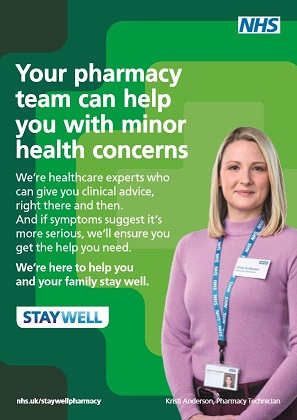
Complaint not upheld on Thornton & Ross campaign for its Covonia product, seen on Facebook 5 October 2017
Complaint not upheld on Perrigo's campaign for its NiQuitin Extra Fresh product, seen on its own website in November 2017
John Smith, PAGB Chief Executive, comments: “This study* looks at the use of ibuprofen in pregnancy, however pregnant women are advised to avoid taking ibuprofen during pregnancy, unless it is on the advice of a doctor. The researchers themselves acknowledge this.
PAGB Director of Communications, Donna Castle, comments “Sore throats can be extremely painful and can differ from person to person in severity, duration and frequency.

John Smith, PAGB Chief Executive, comments: “We welcome any new research* on over-the-counter medicines. However, the researchers highlight that further studies would be required to determine the possible effect ibuprofen could have on human reproductive and physical disorders, specifically in men.
John Smith, PAGB Chief Executive, comments: “We welcome any new research* on over-the-counter medicines. However, the researchers highlight that further studies would be required to determine the possible effect it could have on human health during pregnancy.
John Smith, PAGB Chief Executive, comments: “In the UK, a wide range of over-the-counter (OTC) medicines, both branded and generic, are available to buy from pharmacies and other retail outlets. This ensures people are able to choose a medicine, which suits their needs and their budget.
John Smith, PAGB Chief Executive, comments: “We welcome any new research on over-the-counter medicines. However, the findings* resulted from tests on mice and as the authors acknowledge, more research would be needed to firmly establish if the same effect applied to humans.
PAGB welcomes the Royal College of GPs’ advice to think ‘three before GP’.

PAGB has issued a statement in response to the news that the UK and EU have reached an agreement on phase 1 of the EU Exit negotiations.
John Smith, PAGB Chief Executive comments: “There are a wide range of effective cough medicines available over-the-counter which are suitable for children for short-term-use...
PAGB welcomes decision to allow Viagra Connect to be sold in pharmacies in the UK.

John Smith, PAGB Chief Executive comments: “I hope now that the future location of the EMA is settled, attention can now be turned to the critical issues surrounding the UK’s future relationship with the EU and future participation in regulatory structures and processes"



John Smith, PAGB Chief Executive comments: “All over-the-counter (OTC) medicines in the UK are rigorously assessed for efficacy before they are licenced and brought to market.
Complaint not upheld on RB’s ‘Not All Pain Killers Are Equal’ campaign for its Nurofen Plus product, seen in a trade publication in August 2017.


John Smith, PAGB Chief Executive comments: “Paracetamol oral suspension is an effective treatment that has been used for generations to relieve the discomfort caused by pain, sore throats and fever.
Research, conducted by the University of California - San Diego School of Medicine, has suggested that the use of Proton Pump Inhibitors (PPIs) could potentially contribute to liver disease.


Oxford Dictionaries has added self-care to the dictionary

John Smith, PAGB Chief Executive comments: “This study looked at patients who had been prescribed high daily doses of NSAIDs to treat the painful symptoms of long term conditions, osteoarthritis and rheumatoid arthritis. People taking OTC NSAIDs should not be concerned by this research if they are taking the medicine occasionally for short periods and according to the on-pack instructions."
John Smith, PAGB Chief Executive comments: “In the UK, a wide range of over-the-counter (OTC) medicines, both branded and generic, are available to buy from pharmacies and other retail outlets. This ensures people are able to choose a medicine which suits their needs and their budget.
PAGB welcomes MHRA decision to make Dovonex Psoriasis 50 microgram/g Ointment available over-the-counter in pharmacies in the UK.


In response to the three-month consultation launched by NHS England and NHS Clinical Commissioners1, John Smith, Chief Executive said, “It is important that the NHS uses its limited resources in the most effective way given the current financial pressures and increasing demands on the service.



PAGB welcomes MHRA decision to make Otrivine Extra Dual Relief Nasal Spray Solution available over-the-counter in pharmacies in the UK.

A new study published online in BMJ Open, has reported a possible link between the use of Proton Pump Inhibitors (PPI) and a heightened risk of death, but did not look at over-the-counter (OTC) products.
PAGB welcomes MHRA decision to make anti-malarial Maloff Protect available over-the-counter in pharmacies in the UK.
PAGB response to new published research, carried out by the University of Copenhagen, which found that using painkillers during pregnancy may reduce the masculinity of male offspring.

PAGB response to The Academy of Medical Sciences report "Enhancing the use of scientific evidence to judge the potential benefits and harms of medicines".


In response to the BBC’s on-going investigation of fire risks associated with paraffin based emollient skin creams, John Smith, PAGB Chief Executive, comments: “We are deeply saddened to hear about these particular cases and offer our condolences to the families concerned.
A wide range of over-the-counter (OTC) medicines, both branded and generic, are available to buy from pharmacies and other retail outlets. This ensures people are able to choose a medicine which suits their needs and their budget...


An observational study, published in The BMJ, has suggested that prescribed non-steroidal anti-inflammatory drugs (NSAIDs), used for treating pain and inflammation, may be associated with an increased risk of a heart attack.

PAGB believes that the new Medical Device Regulation marks the gold-standard for regulation.
PAGB response to the Department for Business, Energy and Industrial Strategy consultation, Unlocking the potential of Primary Authority: Implementing the Enterprise Act 2016
PAGB supports Leo Laboratories Limited’s application to reclassify Dovonex Psoriasis 50 microgram/g Ointment (calcipotriol) and make it available over-the-counter in pharmacies in the UK.
In response to the proposed changes announced by NHS England, following recommendations by the NHS Clinical Commissioners, John Smith, PAGB Chief Executive said, “We understand the financial pressures the NHS is facing and the need therefore to ensure that the medicines bill is used as efficiently as possible. This is an important debate but one which needs to be had in a much wider context.

PAGB is supporting moves by Glenmark Pharmaceuticals to reclassify antimalarial medicine Maloff Protect and make it available over-the-counter in pharmacies in the UK.
In response to BBC Radio 5 Live’s Investigation of fire risks associated with paraffin based emollient skin creams, John Smith, PAGB Chief Executive, comments: “We are deeply saddened to hear about these particular cases and offer our condolences to the families concerned.

New research published in the European Heart Journal suggests use of NSAIDS, such as diclofenac, ibuprofen and naproxen, are associated with an increased risk of cardiac arrest.

PAGB welcomes this review of new evidence, however despite several decades of recommendations for supplementation the prevalence of neural tube defects has not decreased.

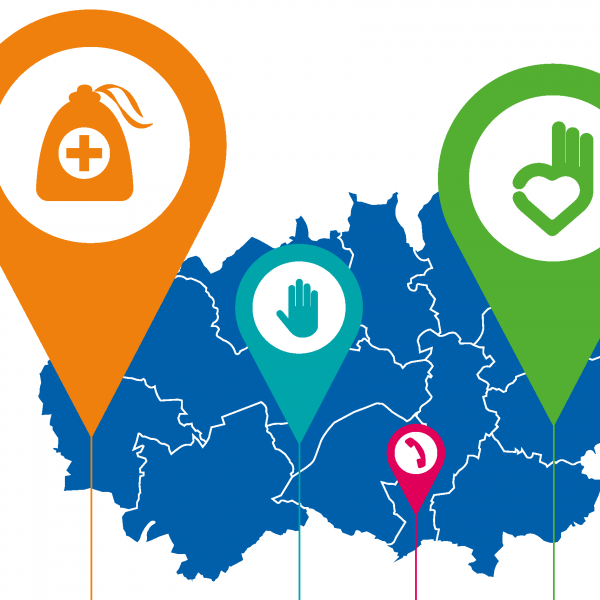
A study, published in The Journal of Infectious Diseases, has suggested that commonly used NSAIDs may increase the risk of a heart attack when used during an acute respiratory infection.
New research from The George Institute for Global Health, published in the Annals of the Rheumatic Diseases has questioned the effectiveness of NSAIDs in treating back pain.
Research, published in Scientific Reports by the University of Edinburgh, has suggested that overdosing on paracetamol can cause liver damage by harming the vital structural connections between adjacent cells in the organ.

Research from the University of Edinburgh has suggested that children born to mothers who have taken prescribed heartburn medication (PPIs and H2-receptor antagonists) during pregnancy, may have a greater risk of developing asthma.
A video produced by the American Chemical Society has questioned the effectiveness of over-the-counter cough medicines.
Research, published in the American Journal of Epidemiology, has suggested that regular use (≥2 days/week) of paracetamol (acetaminophen) and ibuprofen may be associated with increased risk of hearing loss in older women.

December is a busy time of year, but as many of us finally stop and relax in between Christmas and the New Year, the cold weather, stress, plentiful socialising and overindulgence can all lead to some of us suffering from the winter lurgy over the festive period.
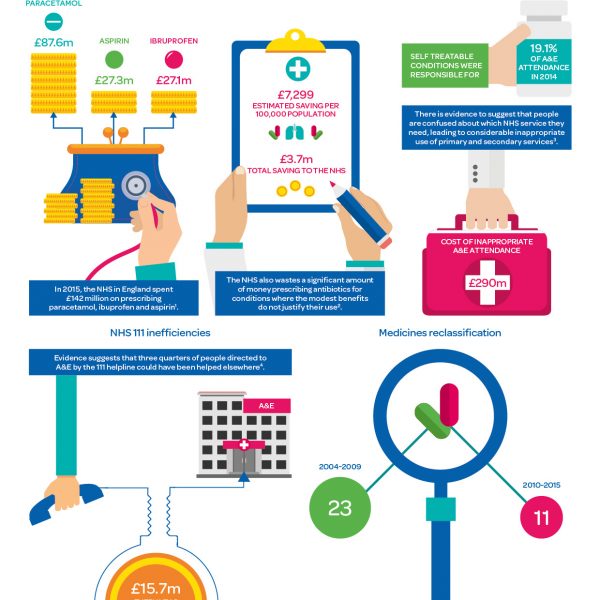
A new report from PAGB, launched to mark Self Care Week 2016, identifies a disconnect between people's attitudes to self care and their actions when they are ill.
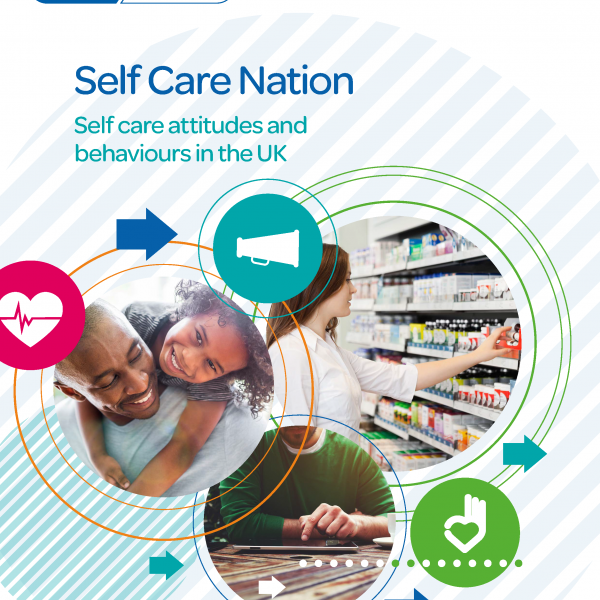
A new report from PAGB, launched to mark Self Care Week 2016, identifies a disconnect between people's attitudes to self care and their actions when they are ill.
Research carried out by the Danish Heart Foundation has reported a potential link between Proton Pump Inhibitors (PPI) used at the highest dosage and an increased risk of ischemic stroke.

PAGB and Pharmacy Voice sent a joint briefing to MPs ahead of a debate on Community Pharmacy on 2 November.
Research carried out by the University Medical Centre in Rotterdam has reported a potential link between the use of prescribed Proton Pump Inhibitors (PPI) and the quality of semen in young men.

A study, published in The BMJ, has suggested that commonly used prescribed non-steroidal anti-inflammatory drugs (NSAIDs), used for treating pain and inflammation, are associated with an increased risk of heart failure.



PAGB will present the 'OTC Brand Revitalisation of the Year' award at the 2017 OTC Marketing Awards


Complaint upheld on a TV advertisement for the NiQuitin Clear 21mg Patch and NiQuitin 4mg Minis Lozenges seen May-July 2016.
On Thursday 21 July 2016, PAGB Chief Executive, John Smith, took part in a webinar to discuss the Government's proposed changes to pharmacy funding and what that may mean for the sector in the future.

PAGB response to research carried out by the US National Institutes of Health and published in Human Reproduction which reported a potential link between paracetamol and male infertility.

PAGB response to research suggesting that the risk of heart failure is increased by the combination of multiple prescriptions, the involvement of multiple healthcare specialists, drug-drug interaction and, amongst other things, excessive use of OTC medicines.
PAGB response to research suggesting paracetamol use in pregnancy may be associated with attention-deficit/hyperactivity disorder (ADHD) and autism spectrum conditions (ASC) in infants.

PAGB response to the Advertising Standards Authority ruling on the advertising of targeted OTC pain medicine.
PAGB response to MoneySavingExpert.com report on branded and generic OTC medicines.
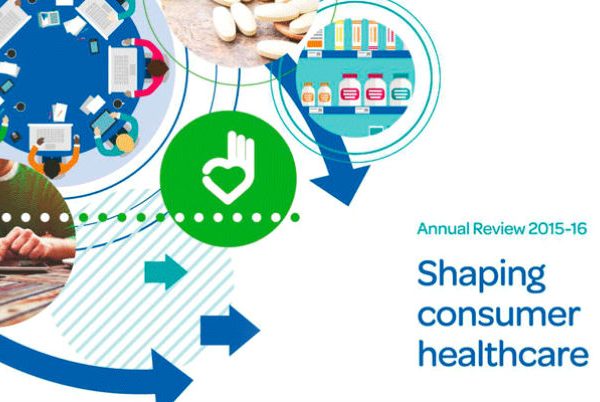
PAGB will work closely with our member companies and regulators over the coming weeks, as the process and timescales for the exit negotiations become clearer, to assess the implications this decision will have for our industry.

PAGB responds to research which has suggested that long-term use of Proton Pump Inhibitors (PPI) for the treatment of severe heartburn conditions may cause blood vessel cells to age faster, which could lead to the risk of heart disease, kidney disease and dementia.
Responding to comments about codeine made on BBC Radio Jersey in a series exploring the island’s relationship with drugs, PAGB Chief Executive, John Smith, said:
“Over-the-counter (OTC) products containing codeine are safe and effective, if used in accordance with the instructions on the pack and patient information leaflet inside....
New research, published online by JAMA Neurology, has suggested that anticholinergic medication use may be linked to cognitive impairment and an increased risk of dementia in older adults.
New research, published online by JAMA Neurology, has suggested that anticholinergic medication use may be linked to cognitive impairment and an increased risk of dementia in older adults.
PAGB responds to research, published online by JAMA Neurology, which has suggested that Proton Pump Inhibitors (PPI) may be associated with increased risk of dementia.
PAGB responds to research, published in the International Journal of Epidemiology, which has suggested that using paracetamol during pregnancy and early infancy may be associated with asthma in infants.
PAGB responds to new published research, carried out by the University of Edinburgh’s Medical Research Council and The Wellcome Trust, which has reported that using painkillers during pregnancy may reduce the fertility of any female offspring.